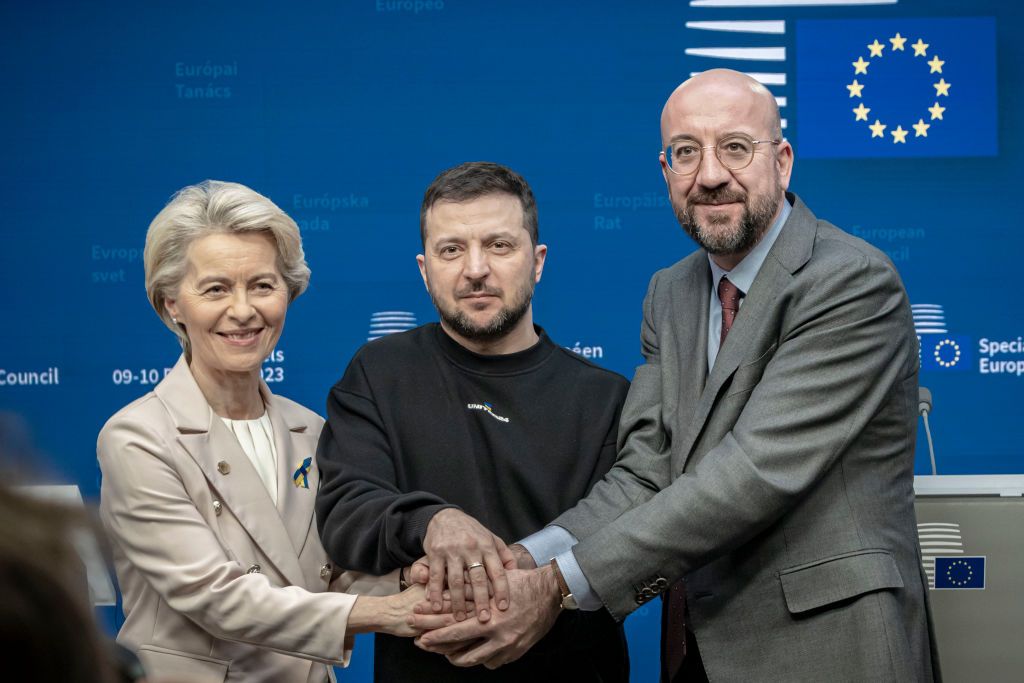Hungary vows to block Ukraine's EU accession talks as media reports imminent Commission recommendation.
Hungary will not allow the opening of negotiations on Ukraine's accession into the European Union as long as a controversial language law is upheld in the country, Balazs Orban (no relation), Political Director to Hungarian Prime Minister Viktor Orban, said in an interview with Dutch broadcasting service NOS on Nov.
7. Reports from Bloomberg and RFE/RL on Nov.
7 said that the European Commission may vote on Nov.
7 to formally recommend opening negotiations on Ukraine's accession to the European Union. Nonetheless, Ukraine's current minority language laws could prove to be a stumbling block in securing Hungary's vote.
"New laws have been introduced that have made life miserable for Hungarians in Ukraine," Balazs Orban said. "The Hungarian position is crystal clear: as long as this law exists, there can be no discussions with the Ukrainians about their integration into the European Union." The language law that Balazs Orban referred to, which "made life for Hungarians in Ukraine," was instituted in 2017 and requires at least 70% of education above fifth grade to be conducted in Ukrainian. Ukraine has significant Hungarian and Romanian minorities, and the minority language law has created rifts at times with both countries, particularly with Hungary.
The measure attracted criticism from Romania's President Klaus Iohannis, who said in 2017 that it "drastically limits" the access of minorities to education in their native language. Ukraine responded that it does not intend to crack down on its minorities, only to ensure that every Ukrainian citizen has sufficient knowledge of Ukraine's official language. President Volodymyr Zelensky signed an updated law on national minorities on Nov.
3, allowing for the publishing of advertisements in the language of a national minority within its community, as well as public and cultural events to be held in a minority language. The law does not apply to the Russian language. Ukraine officially applied for EU membership in late February 2022, just days after the beginning of the full-scale war.
Ukraine was granted candidacy status in June and presented with seven criteria it needs to fulfill in order to begin the talks. It often takes many years for candidate countries to have accession negotiations opened by the European Union. Earlier on Nov.
7, the European Parliament said that Ukraine has fully implemented four of the seven steps required to start EU accession talks but that three remaining criteria, including the protection of national minorities, remain unfulfilled.
Opinion: The geopolitics of EU enlargement The debate surrounding the European Union's potential expansion is no longer really about Ukraine and the western Balkans. Enlargement is now an existential question with far-reaching implications for the EU and its ability to remain a prominent player in a rapidly changing global environment.
BERL...
